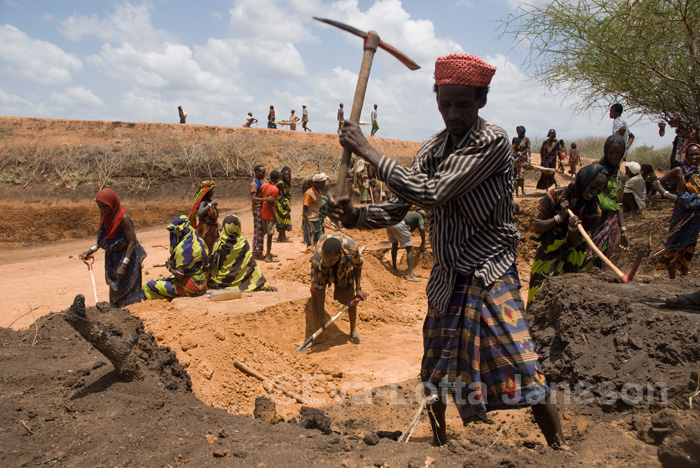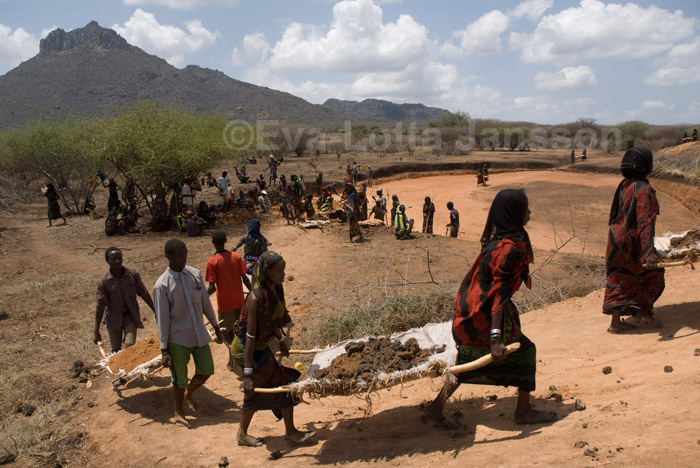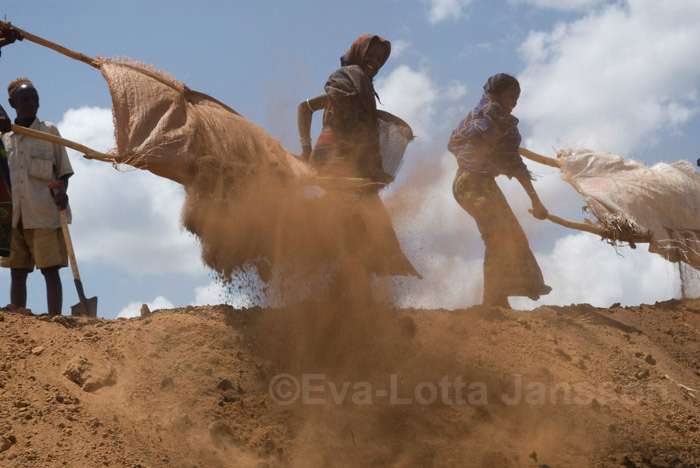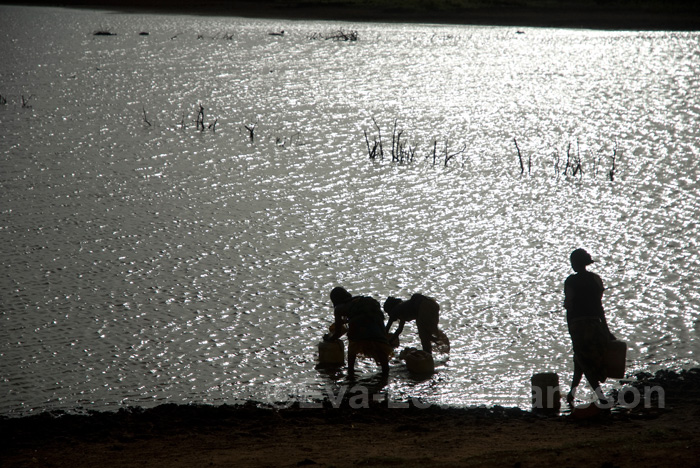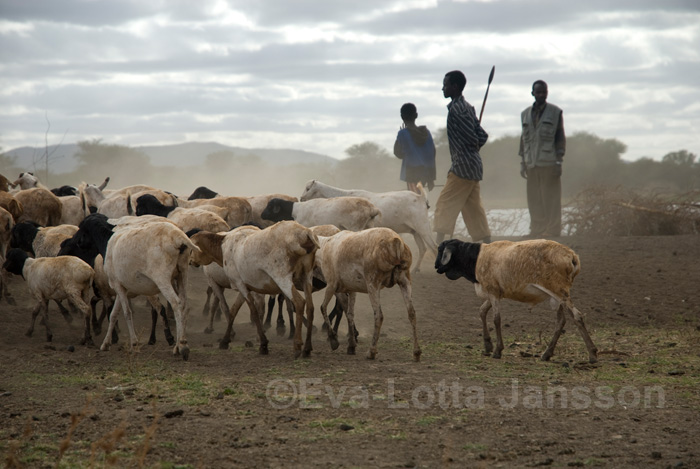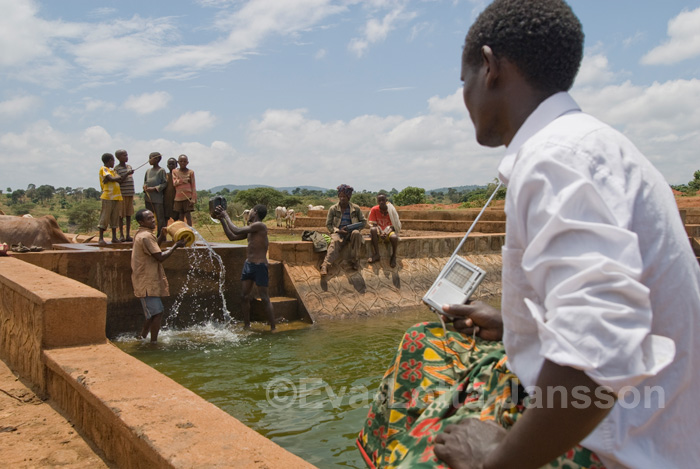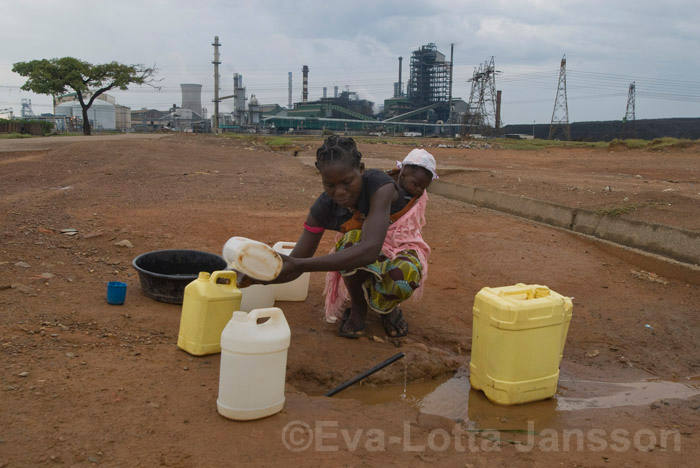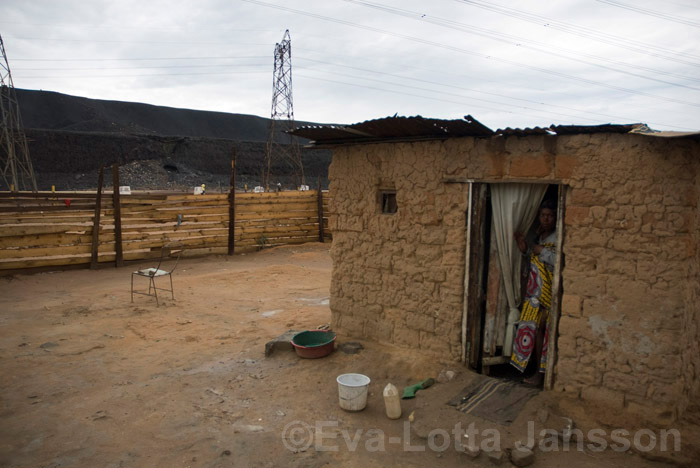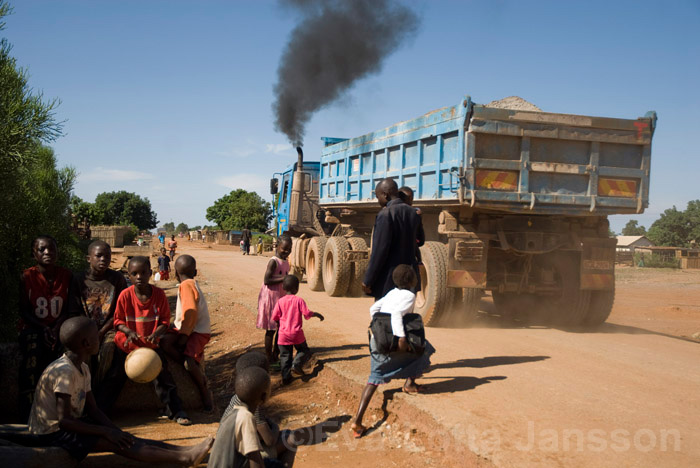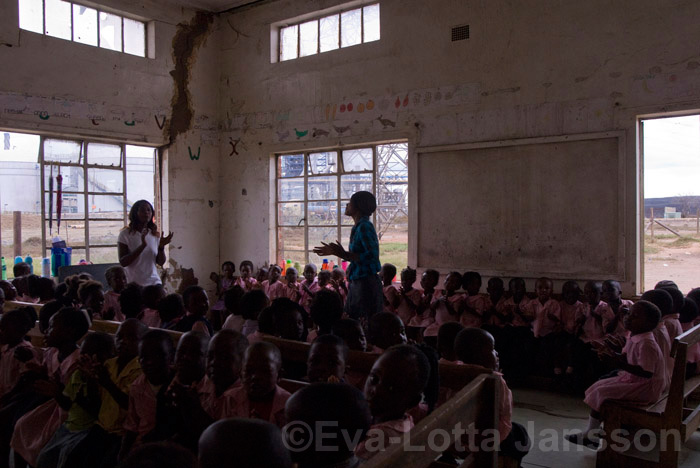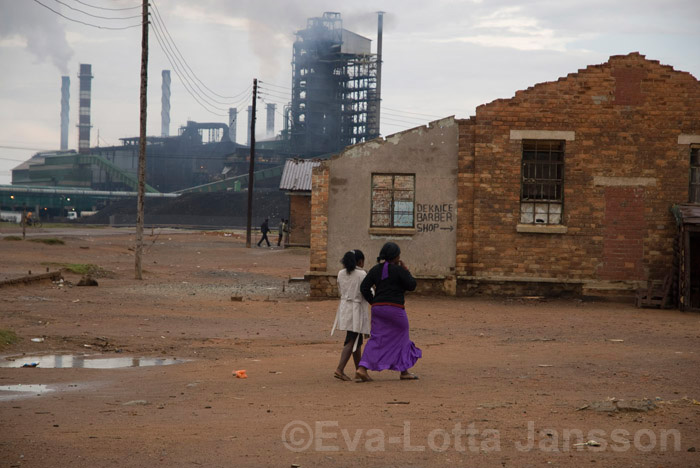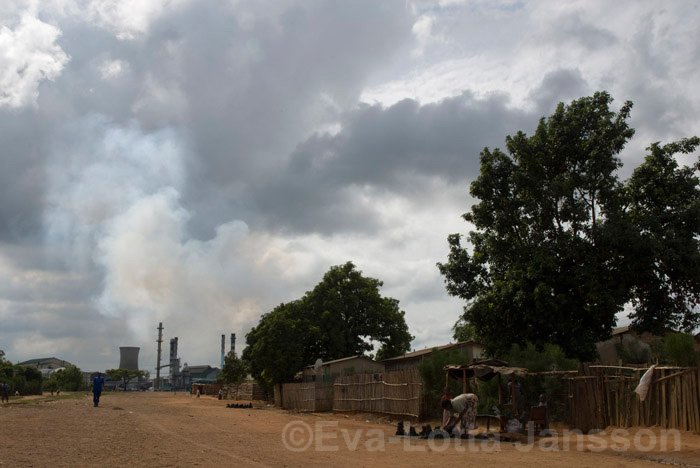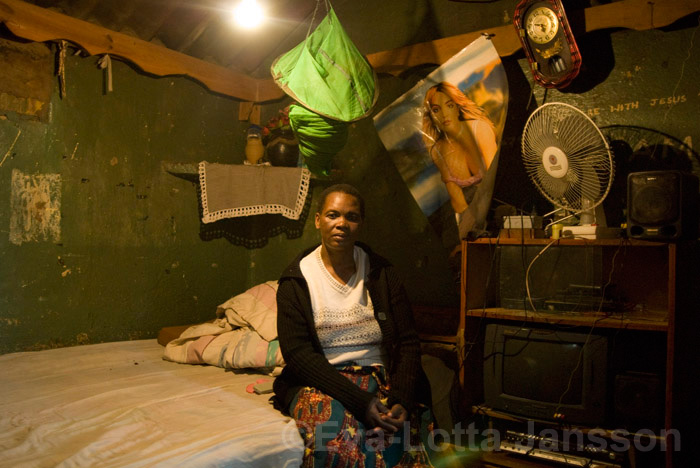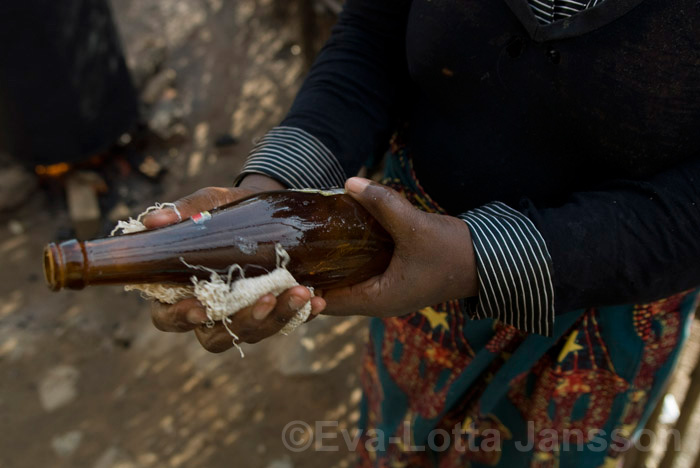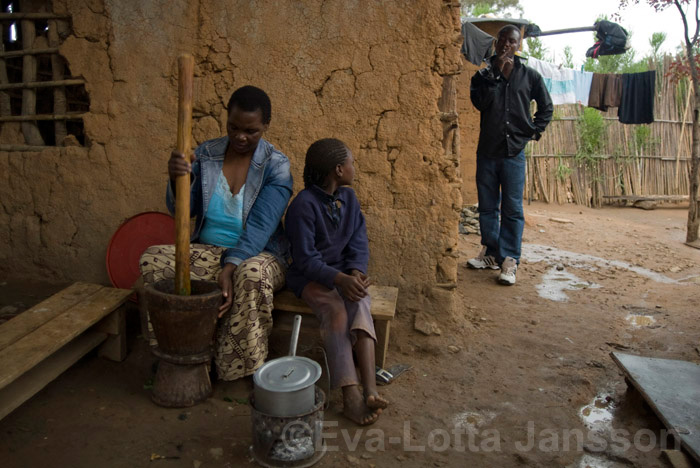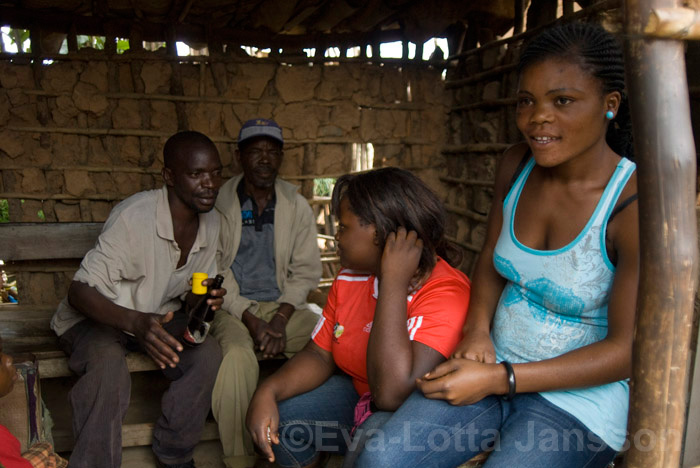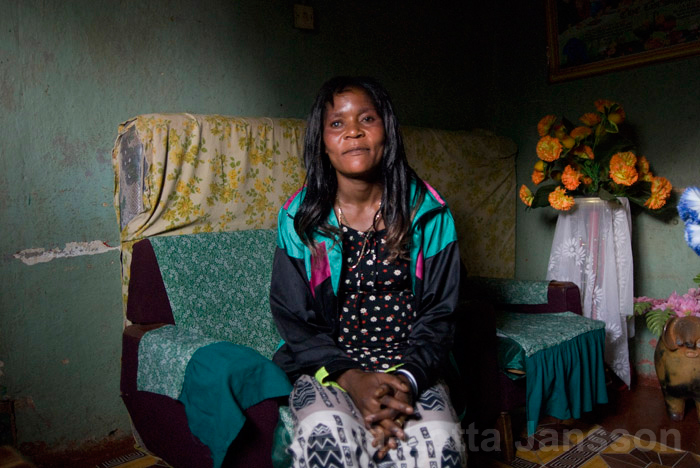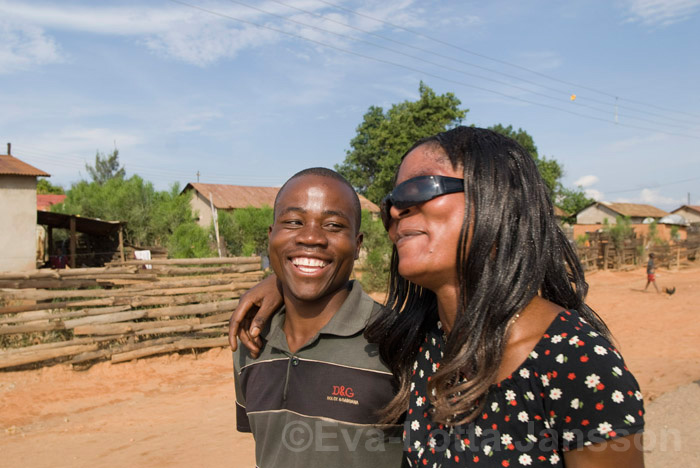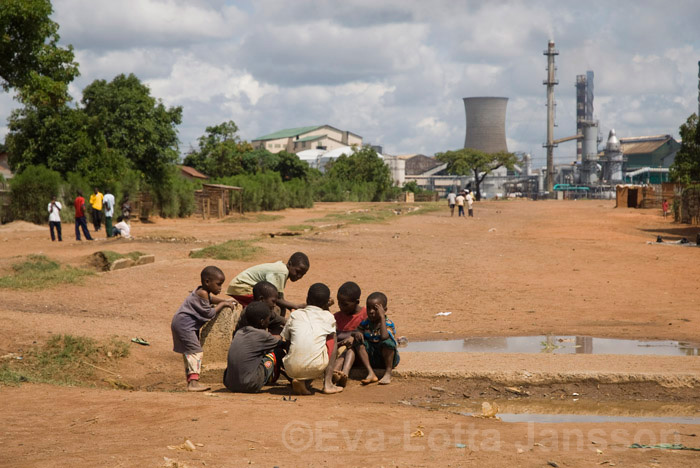DIGGING FOR RAIN
©Eva-Lotta Jansson
©Eva-Lotta Jansson
©Eva-Lotta Jansson
©Eva-Lotta Jansson
©Eva-Lotta Jansson
©Eva-Lotta Jansson
©Eva-Lotta Jansson
In Ethiopia, where people are severely affected by drought, farmers and pastoralists are fighting to improve their odds
of survival. Communities are digging massive ponds by hand to collect rare raindrops as drinking water for themselves
and their animals. Being animal herders for centuries, some pastoralists are learning to farm, sometimes with the help
of irrigation. NGOs like Oxfam America are supporting them in their efforts. Over the years, I have travelled to Ethiopia
with the organization to document this and other humanitarian work. Here are just a few of the pictures from those trips.
LIFE IN KANKOYO
Doreen Mumba, 36, with baby on her back, fetches water in Kankoyo, where she lives with her husband who is a mine worker, and her five children. This is her only source of water. ©Eva-Lotta Jansson
A woman, who lives right underneath power lines and next to the mine, peers out of her house. ©Eva-Lotta Jansson
A father is walking his children to school as others are playing. Trucks from the mine continuously drive through the streets of Kankoyo where children are playing. ©Eva-Lotta Jansson
Teachers and children at a school situated right next to the mine are singing and clapping. Although they are very loud, they are not managing to drown out the noise from the mine. ©Eva-Lotta Jansson
Two women are walking in Kankoyo, in the area where one of the bars are. ©Eva-Lotta Jansson
Fumes from the mine are mixing with the rain clouds over Kankoyo. ©Eva-Lotta Jansson
Violet Mwansa, 47, in her bedroom, where she also eats her dinner and watches TV. Violet's husband who was a mine worked died from lung failure three years ago. Now she supports herself by brewing and selling 'beer,' running a tavern in her backyard. ©Eva-Lotta Jansson
Violet washes the label off a recycled beer bottle to use it to serve her customers drinks. ©Eva-Lotta Jansson
Violet does household chores, with a neighbour's child sitting beside her. Her tavern clients are drinking in the hut behind her. ©Eva-Lotta Jansson
Mwansa's daughter (L to R) Gwen Mukosha, 17, and her married niece Purine Mukosha, are entertaining with her (drunk) clients. ©Eva-Lotta Jansson
Jane Mambwe, 32, a sex worker, at her home in Kankoyo. She says she has two regular customers and also goes on daily rounds looking for more. 'I didn't have any way of getting money for food, or for my child's school,' she says. 'So I have no other option.' ©Eva-Lotta Jansson
Jane walks on one of her daily rounds through Kankoyo looking for clients who want to have sex. ©Eva-Lotta Jansson
Jane greets a client she has had sex with before. ©Eva-Lotta Jansson
Children playing on the streets of Kankoyo. ©Eva-Lotta Jansson
Kankoyo is a township in Mufilira, northern Zambia, where residents live right next to the Mopani Copper Mine. The
mine’s chimneys emit toxic fumes over the township, where tenants also struggle with other environmental hazards
such as garbage covering the streets, a clogged sewage system, and contaminated water supply. First, the houses
were built for mine workers. But today, many households are headed by females, as their husbands have either died
or left them. Unemployment is the rule here and many women have turned to sexwork to support their families.

